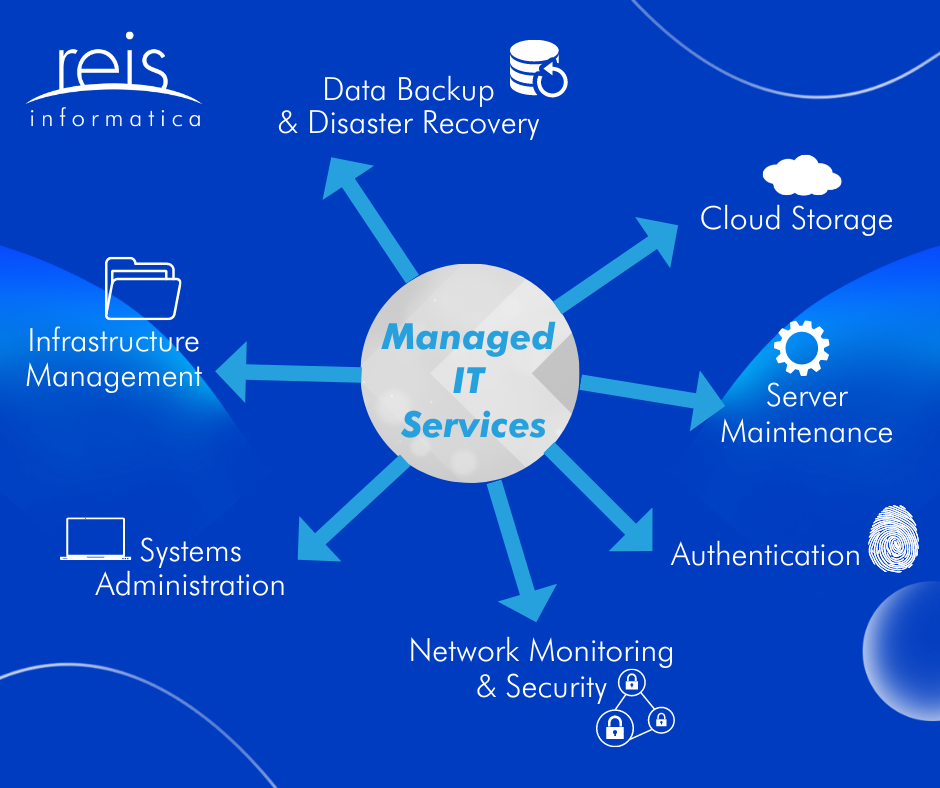It’s 2022 and if you are still relying on your in-house IT team to maintain your systems it might be time for a change. Technology has come a long way since the days of break/fix IT, and with the recent cyber attacks against companies, the reality is that most internal IT services aren’t equipped to keep up with the pace of innovation. Many businesses are finding their IT to be reactive rather than proactive, and their systems struggle to keep up with the demands of a growing business in a digital world.
Many business owners don’t outsource a third-party provider because they think their current IT structure is fine or because they are concerned about the cost, but now is not the time to slack on security. The extra cost your company woul
What are Managed Services?
The term managed services is the practice of outsourcing business administration and management responsibilities to a third party. You’ll notice that this definition isn’t specific to IT — that’s because managed services can describe anything from supply chain management to marketing strategy to call center operations. Managed IT services are the most commonly referred to as a type of managed service.
The demand for managed services has grown in recent years. The global managed services market was valued at $185.98 billion in 2019 and is projected to reach $356.24 by 2025.
Small and medium-sized businesses (SMBs) have spiked an increase in demand and also those who require access to the latest technology in order to maintain a competitive edge in their respective markets and to sustain their continued growth but lack the IT budget to meet those goals. Managed services allow SMBs to play at the same level as middle-market and enterprise-level organizations, without overextending themselves — and that’s only one of the benefits of the managed services model.
What are the Benefits?
One of the benefits of managed services is that it frees up time so your employees can focus on the jobs they were hired to do. It also enables you to fill in gaps as needed. A truly qualified managed services partner will offer a flexible service model that allows you to determine what level of service you require, whether that means just keeping the lights on or outsourcing your company’s entire IT department.
New technology can mean new problems that your existing IT team might not have the knowledge or experience to solve. There is also the issues of management. Regardless of whether your systems are in the cloud or on-premise, you’ll need a significant number of resources to support your business solutions, which poses an issue if your IT department is really a one-person shop.
Both of these problems can be solved by recruiting new team members, but the cost of hiring and training new employees can be astronomical.
One of the main advantages of the managed services model is that it enables you to hire an entire team of IT professionals at a flat monthly rate.
One of the clear benefits of managed services is that it lowers labour costs and eliminates the cost of hiring and training new IT staff. The ability to have skills available on a scalable basis is incredibly compelling.
With an MSP, you never need to worry about availability because most MSPs offer 24/7 flexibility, on-call options, and weekend support. Reis Informatica has offices around the globe. That’s part of how we provide organizations with peace of mind and earned our reputation as a leading IT managed services, systems integrator, and project management firm. You never have to worry and we are ALWAYS available!
With Reis Informatica, you can plan a bold and secure future — your IT and cybersecurity systems are in capable hands. That’s our promise to you. Ready to transform your business?
Request Your Complimentary Consultation!
Source:
https://global.hitachi-solutions.com/blog/benefits-of-managed-services/

